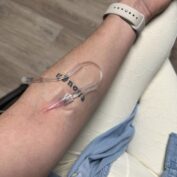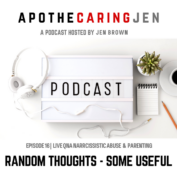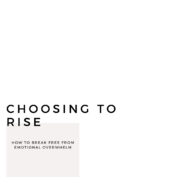Hey friends, Jen here. I want to chat about something that’s been weighing heavily on my mind—and I’ll be honest, it’s not an easy topic. But I believe it’s one of the most important conversations we can have in our homes, our communities, and our country right now: suicide, mental health, and the trauma faced by veterans, first responders, and everyday folks.
Why This Conversation Matters
I was looking up some numbers the other day—because I’m kinda nerdy like that and like to know what’s really going on—and I came across some 2021 CDC statistics that stopped me in my tracks. Did you know suicide was the 11th leading cause of death in the U.S. that year, with over 48,000 deaths recorded? That’s one person every 11 minutes. Makes my heart hurt just thinking about it.
But that’s only part of the story. When we zoom in on specific groups, like veterans, police officers, firefighters, and EMS, the numbers get even more staggering. The Department of Veterans Affairs estimates around 16.8 veterans die by suicide each day—that’s 57.3% higher than the general population. And our first responders (police officers, firefighters, and EMS) often face higher risks of suicide than they do of losing their lives in the line of duty. Just think about that for a second.
The Weight of Responsibility
Now, I’m no stranger to talking about trauma. Even in something as “simple” as knowing where our food comes from—especially if you’re raising or hunting your own meat—there’s a profound emotional weight in taking a life, even if it’s for survival. There’s gravity there. It reminds me that life is precious, and taking a life—even an animal—leaves a deep impression on your heart.
Multiply that feeling tenfold for those who go off to war zones, or who pull people out of burning buildings, or respond to accidents, or have to enforce the law day in and day out. They see things that would break most of us. Yet they keep doing it because it’s their job and their calling. That trauma doesn’t always show up on the outside, but you better believe it leaves scars on the inside.
Veterans: A Special Kind of Hero
The data shows that male veterans aged 18 to 34 and female veterans have disproportionately high suicide rates—female veterans, in fact, are more than twice as likely to die by suicide compared to non-veteran women. Combat experiences, intense pressure, and mental health struggles like PTSD can push veterans to their limits. Sometimes they feel misunderstood or isolated when they come back to civilian life. And let’s face it—transitioning from a war zone to your hometown isn’t exactly a cakewalk.
First Responders: Bearing the Brunt
- Police Officers: Over 240 police officers died by suicide in 2021. Think about the burden of wearing the badge, day in and day out. Everyone knows you’re the police officer, which comes with certain stigmas, fears, and yes, hostility from some people. That’s got to be one of the most tormenting kinds of stress to carry around.
- Firefighters & EMS: They’re more likely to die by suicide than in the line of duty. Let that sink in. These men and women run into burning buildings, rescue people from cars, and deal with unimaginable scenes. Repeated exposure to trauma leaves a mark on the soul.
Connecting the Dots: Trauma Is Real
Trauma isn’t just a buzzword. It’s a very real, physical, emotional, and spiritual toll. Whether it’s the trauma of taking a life to provide healthy food for your family, or the trauma of witnessing tragedies daily, it weighs on you. Over time, if it’s not addressed—if we don’t take care of our minds the same way we try to take care of our bodies—it festers.
One thing I’ve realized is that acknowledging we need help can be a huge step toward healing. That’s why it’s so critical we talk about it openly. Because if we don’t, well, these men and women—our neighbors, friends, and family—will keep slipping through the cracks.
What Can We Do?
- Normalize the Conversation
Stop treating mental health like a secret we hide in the corner. We should be able to talk about seeing therapists, using mental health resources, or taking medication, just like we talk about taking vitamins or having check-ups. - Advocate for Better Resources
Our veterans’ hospitals, local communities, and workplaces need to ensure help is readily available. That means more therapists, more crisis lines, more peer-to-peer support programs—and pushing for them through our local and national representatives. - Support First Responders & Military Families
If you know a police officer, firefighter, veteran, or EMS worker—check in on them. Little gestures and genuine conversations can go a long way. Sometimes they just need someone to listen. - Educate Ourselves
Don’t rely on the headlines alone. Do your own digging into statistics, local resources, and how you can be part of the solution in your community. - Practice Self-Care
Never underestimate the power of a daily walk, a hearty laugh, a home-cooked meal, or a quiet moment in prayer or meditation. Self-care isn’t selfish—especially if it allows you to show up as a healthier, more present version of yourself for the people who need you most.
Walking Each Other Home
At the end of the day, we’re all trying to do the best we can in this wild world. Some of us might have bigger burdens to carry—whether that’s the memory of war, the trauma of a fatal car accident, or the overwhelming stress of policing our communities. If we can be there for each other—even in the smallest of ways—it can literally be the difference between life and death for someone on the brink.
I always say, “It’s about walking each other home.” And to me, that means putting an arm around one another and saying, “Hey, I see you. I hear you. Let’s figure this out together.”
If You Need Help Right Now
- Suicide & Crisis Lifeline (USA): Dial 988
- Veterans Crisis Line (USA): Dial 988 + Press 1
- International Support: Find Resources Here
No matter where you are or what you’re going through, please remember you do not have to walk this alone.
Join the Conversation
If you found this helpful or eye-opening, please share it with someone who could use the support or insight. Let’s keep the dialogue going. Drop a comment below on how you’re doing, or share some of your own experiences with these issues. You never know whose life you might be touching.
And as always, folks, thanks for reading and for caring. Until next time—take care of yourselves and each other.
– Jen
Remember: If you or someone you know is in crisis, don’t hesitate to reach out for help right away. Dial 988 in the U.S., or find international support lines online. We need every one of you here.














